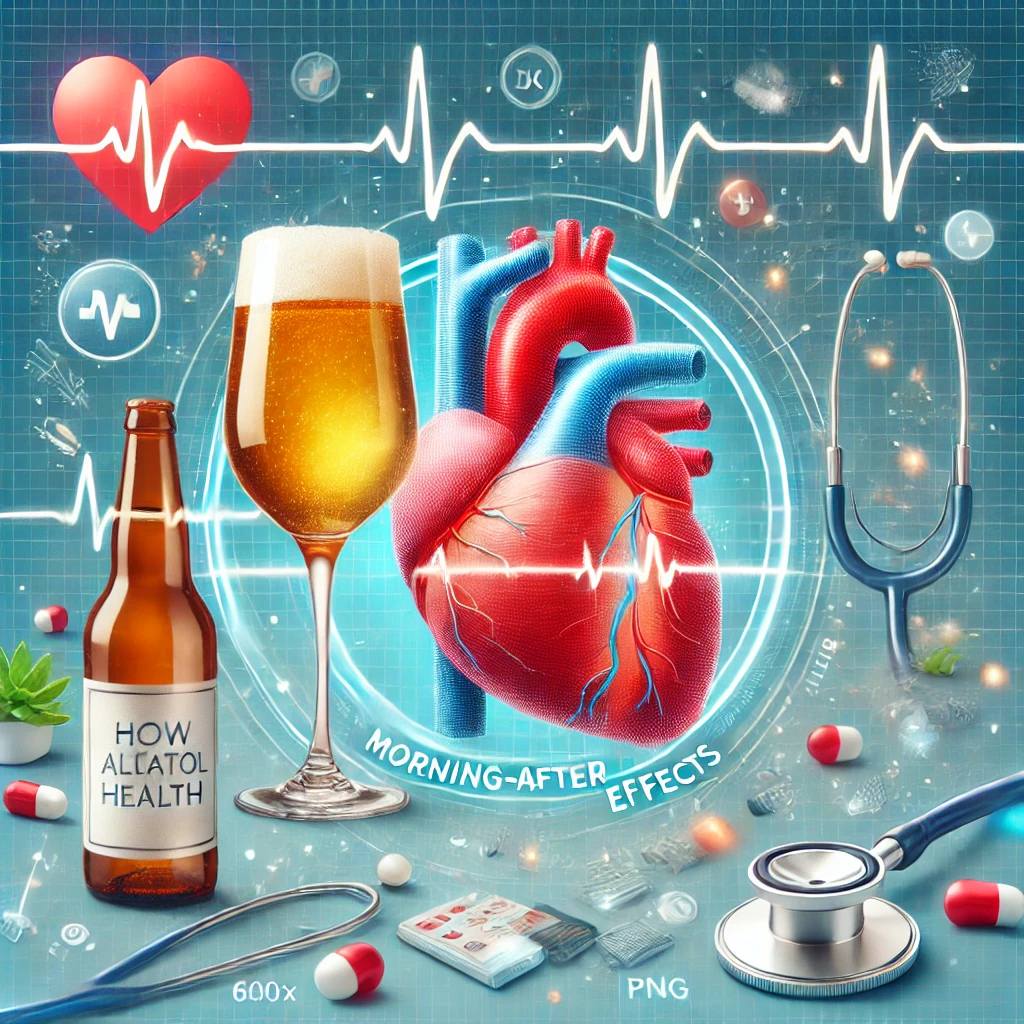How Alcohol Impacts Heart Health: Morning-After Effects Revealed
Recent research conducted by esteemed scientists at Baylor University sheds new light on how alcohol affects our heart health, particularly focusing on the morning-after effects. This research is crucial as it highlights not only the immediate impacts of alcohol consumption but also the subsequent reactions our body endures in its recovery phase.
Understanding the Morning-After Effects of Alcohol
Alcohol, a common social lubricant, is often consumed without much thought about its long-term consequences. While the short-term effects of alcohol such as impaired judgment, loss of coordination, and reduced reaction times are well-documented, the more lingering impact it has, especially on cardiovascular health, hasn’t been as publicized.
The morning after indulging in a few too many drinks is often characterized by a hangover. However, the **detrimental impact on cardiovascular health** is usually overlooked. This is primarily because most symptoms are internalized and aren’t as immediately noticeable.
The Science Behind Alcohol’s Interaction with the Cardiovascular System
According to the recent research, alcohol consumption affects the cardiovascular system in various ways:
- It **alters heart rate** and blood pressure.
- It can lead to **irregular heartbeats**, known as arrhythmias.
- There’s an **increase in vascular resistance**, making it harder for blood to flow through the arteries.
The study highlights that these effects are not isolated to the period of consumption alone. Instead, they have a lingering presence that becomes evident the morning after and persist even when the alcohol has left the bloodstream.
The Link Between Alcohol and Heart Rate Variability
Heart rate variability (HRV) is a critical measure of the heart’s health and flexibility. A normal, healthy heart doesn’t beat like a metronome; instead, it has subtle variations in time between beats. High HRV is generally seen as an indicator of good heart health and strong autonomic nervous system function.
**Research findings** indicate that post-alcohol consumption, there is a significant decrease in HRV:
- This **reduction** in HRV implies that the heart is working harder to perform the same functions, indicating increased strain on cardiovascular resources.
- The **balance between sympathetic and parasympathetic nervous systems** is disrupted, delaying recovery to homeostasis.
This disruption, especially if regular, poses chronic risks to heart health and exacerbates underlying cardiovascular issues.
Long-Term Cardiovascular Risks of Habitual Drinking
While enjoying an occasional drink is seen as part of a balanced lifestyle, habitual or excessive drinking takes a toll on long-term cardiovascular health. According to Baylor’s research, frequent drinkers face several potential risks:
- Increased risk of developing **hypertension** (high blood pressure).
- Higher susceptibility to **heart attacks and strokes** due to damaged blood vessels.
- Potential for long-term **cardiomyopathy**, where the heart muscle is weakened and enlarged.
Acknowledging the **accumulative effect of alcohol** on cardiovascular systems, it becomes imperative for individuals to monitor their drinking habits, particularly when considering both current and future cardiovascular health implications.
Strategies for Mitigating Alcohol’s Impact on Heart Health
Given these findings, individuals concerned about their heart health should consider strategies to mitigate the impact of alcohol:
- **Moderation** is key – follow recommended guidelines for safe alcohol consumption.
- Ensure a balanced diet and regular exercise to counteract alcohol’s effects.
- Be mindful of **hydration**; alcohol is a diuretic and can lead to dehydration, exacerbating cardiovascular strain.
- Monitor heart health through regular checkups and discuss any concerns with healthcare professionals.
Conclusion: A New Perspective on Alcohol and Health
The groundbreaking research from Baylor University provides a crucial understanding of alcohol’s effects on heart health, far beyond the hangovers we typically associate with a night of indulgence. It emphasizes the importance of considering the **heart’s health post-consumption**, encouraging more informed decisions around drinking habits.
Ultimately, while the joy of social drinking is significant in many cultures, understanding and mitigating the risks is essential for long-term cardiovascular wellness. Whether it’s an occasional glass of wine or a regular night out, being informed and practicing moderation can help preserve heart health, ensuring it can handle whatever challenges come its way.



